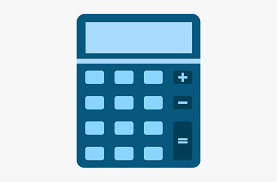Consume water responsibly
Water-saving tips - Aguas de Antigua
Water-saving tips
Water is a scarce resource
Given the situation we find ourselves in today and the outlook for the future, it is vitally important that we be aware of and reduce our water footprint, consuming water conscientiously and adopting everyday habits to avoid excessive use. By doing so we can contribute to conserving a scarce natural resource.
Below are a number of water-saving tips:
- Installing aerators on kitchen and bathroom taps can save up to 50% water with each use.
- Did you know that a single tap can drip over 90 litres a week? Make sure you turn them off properly after using them.
- Ajusta el nivel del flotador en la cisterna del servicio, esto te permitirá ahorrar hasta dos litros de agua cada vez que tires de la cadena.
- Adjust the float level in the toilet cistern to save up to two litres of water each time you use the flush.
- Check the toilet cistern by adding food colouring to the tank. If the colour appears in the bowl after half an hour, this means you have a leak.
- Avoid flushing more than necessary. A tissue, insect or nut shell is not a good enough reason for flushing a tank that contains 10/12 litres. Throw them in the organic waste bin.
- We should be sure to never throw oils, paint, cigarette butts, plastic, etc. in the toilet, as they are pollutants, which are difficult to eliminate, and can block pipes and affect how well treatment plants work.
- If you are going to buy a washing machine, look for ‘eco-friendly’ specifications, as this will help you save on electricity as well as water. Did you know that some of the energy you use is produced using water? You’ll be saving twice over.
- When doing the washing up, fill the sink to soap the dirty dishes; when rinsing, adjust the tap pressure to the amount you really need and rinse all the dishes together.
- If you use the dishwasher, remember you only need to remove solid waste from dishes, you don’t need to rinse them; otherwise you’ll be using double the amount of water.
- Fill a bowl to wash fruit. If you wash it under the tap you’ll use twice as much water. Afterwards, you can use the water in the bowl to water plants.
- Don’t use running water to defrost food either. Remove it from the freezer the day before, and remember that the slower the food defrosts, the better the product.
- Keep a bottle of cold water in the fridge so you don’t have to leave the tap running when you want cold water.
- Take a daily 5-minute shower instead of a bath and save up to 400 litres a week.
- Installing a low-flow shower head or aerator can save up to 50% on water depending on the type.
- Don’t leave the tap on while shaving or brushing your teeth. Brushing your teeth three times a day with the tap on uses over 10,000 litres a year.
- Never flush wipes or cotton buds or any other personal hygiene products down the toilet. Wipes are a horrible nuisance that clog up water supply networks and wastewater treatment plants.
- Use native plants for you garden; some species need to be watered constantly, while others will survive with much less attention.
- Don’t water your garden excessively. Once every 4 or 5 days in summer and once every 15 days in winter is enough. Also, try and water early in the morning or in the evening, as this reduces water loss due to evaporation.
- If you water your garden by hand, don’t leave the hose unattended. You can use a kitchen timer to remind you when to turn it off.
- Using automatic irrigation systems will help you set the time and frequency for watering, adjusting it to requirements, such as if it has rained or rain is forecast.
- Check the connectors, splices and hoses on your watering system regularly. They may hide a large leak.
- Use water from the fish tank to water your plants, as it is rich in nitrogen and phosphorous and considered an excellent fertilizer.
- Whenever you cook hard-boiled eggs, save the water for your plants, as they’ll benefit from the nutrients released by the shells.
- In general, if you need to pour away clean, use it to water plants or gardens instead of pouring it onto a hard surface.
- Try and wash your car in an automatic car-wash, as they are designed to use water efficiently.
- Be active in saving water by giving advice to others when you see them using it inappropriately.
Don't know your consumption yet?
Calculate your estimated consumption with our online calculator.
